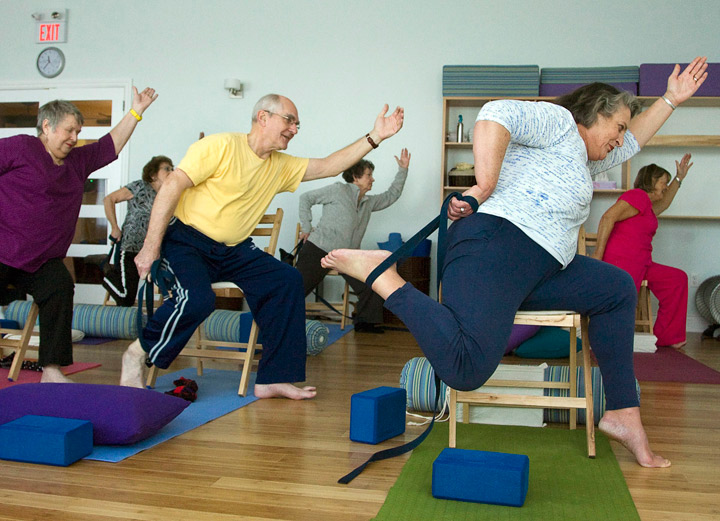TORONTO – Hundreds of organizations around the world hope to raise global mental health awareness, education and advocacy during World Mental Health Day on Thursday.

First celebrated in 1992, this year’s theme will focus on mental health and older adults.
READ MORE: Artist aims to raise awareness by depicting mental health illnesses as monsters
The initiative is part of the greater worldwide Mental Health Awareness week.
The World Health Organization said that approximately 15 per cent of adults 60 and over suffer from a mental disorder. In any given year, at least one in five Canadian adults under the age of 65 will have a mental health problem.
READ MORE: Canadian gov’t inaction on mental health hurts economy, families: report
In 2012, the first-ever national strategy to improve mental health for all Canadians was released by the Mental Health Commission of Canada. The report found that the economic impact of mental illness in Canada is $51 billion per year and that over the next 30 years, cumulative costs are expected to exceed $2.3 trillion.
Despite the startling facts surrounding mental illness, many health care professionals say that one of the largest barriers with mental health issues is stigma—the dirty word of mental health.
READ MORE: Toronto film explores the power of art in mental health treatment
Mental health problems are under-identified by health care professionals and older people themselves, and the stigma surrounding mental illness makes people reluctant to seek help.
Here’s a look at some of the key facts regarding mental illness and older adults:
- Life in the forest: How Stanley Park’s longest resident survived a changing landscape
- ‘Love at first sight’: Snow leopard at Toronto Zoo pregnant for 1st time
- Buzz kill? Gen Z less interested in coffee than older Canadians, survey shows
- Carbon rebate labelling in bank deposits fuelling confusion, minister says
Mental health has an impact on physical health and vice versa
According to the WHO, “older adults with physical health conditions such as heart disease have higher rates of depression than those who are medically well.” The organization said that untreated depression in an older person with heart disease can also negatively affect the outcome of the physical disease.
Age discrimination has a negative impact on the well-being of the elderly
The mental health of older adults can be improved through promoting active and healthy aging.
“Aging is a gradual process and there is much we can do to promote good mental health and well-being in later life,” according to a 2006 Swedish report on healthy aging. “Participation in meaningful activities, strong personal relationships and good physical health are key factors.”
Earlier this month, a global study issued by the United Nations found the world is aging so fast that most countries are not prepared to support their swelling numbers of elderly people. Between 2000 and 2050, the proportion of the world’s population over 60 years is expected to double from about 11 per cent to 22 per cent.
READ MORE: World not prepared to support growing elderly population: report
Depression and dementia are the most common neuropsychiatric disorders in adults aged 60 and over
Dementia is a syndrome that affects memory, thinking, behaviour and ability to perform everyday activities. It is the leading cause of dependency and disability among older people and between two and 10 per cent of all cases of dementia start before the age of 65.
The disease is not only overwhelming for people have it, but for caregivers and family members as well. The 2012 World Alzheimer report found that dementia affects 35.6 million people worldwide and the number will likely double by 2030.
While depression and Alzheimer’s disease are more prevalent among women than men, not all people get depressed as they grow older.
“Depression is not an inevitable part of aging,” said the Canadian Mental Health Association. “Neither is it normal for an older person to lose interest in activities that they used to enjoy; experience excessive sleep disturbances; or suffer from an inexplicable lack of energy.”
WHO said older adults need to be encouraged and educated to do more physical exercises, keep socially connected and keep their brains active in order to follow a lifestyle that aggravates a lack of mental well-being.




Comments